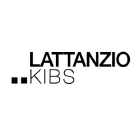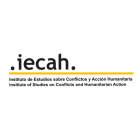WORKING WITH DG ECHO AS AN NGO PARTNER | 2021 - 2027
REMANING GOODS
According to Article 6 of the Grant Agreement, costs related to the purchase of goods are eligible if incurred during the implementation period and necessary for the Action. This implies that the relating results foreseen in the proposal need to be achieved within the duration of the implementation period of the Action.
Goods purchased towards the end of the Action and not distributed by the end of the Action are, in most cases, considered not necessary for the Action and will be declared ineligible unless duly justified.
However, it may happen that, despite results and indicators being achieved, Partners still have remaining goods in quantity exceeding 20% of goods purchased during the Action. In this situation, the following steps (in order) should be followed:
- To request a no-cost extension
- To transfer the goods to another DG ECHO-funded Action
- To transfer the goods to eligible recipients
- To request a derogation from the obligation to transfer/donate
NO-COST EXTENSION
If operationally feasible and adequate, the Partner should consider requesting to DG ECHO an extension of the Action implementation period, in order to organise additional distributions of remaining goods. Such extension has to be requested through an amendment procedure in due time. In order to avoid risk of double funding in the event of an overlap of actions/activities, a no-cost extension is possible only if there is no follow-up Action or when the follow-up Action does not focus on addressing the same needs (i.e. there is no overlap in the activities/results).
TRANSFER
When the no-cost extension is not possible, the Action’s results are achieved and the remaining amount of goods is not caused by procurement excessive to the needs (due diligence), the goods can be transferred to other DG ECHO-funded Actions.
Goods can be transferred only once, meaning that they have to be distributed / used during the implementation period of the recipient Action, otherwise DG ECHO shall recover the corresponding costs.
The Partner will provide, at final report stage, the code of the Action to which the remaining goods were transferred to.
If transfer to another DG ECHO-funded Action is not possible or economically advisable, the marginal quantity of remaining goods can be donated to final beneficiaries, local non-profit organisations, international non-profit organisations, International Organisations, or local authorities, if agreed by DG ECHO. This approval shall be requested in the Final Report.
The Partner will provide, at final report stage, the indication of the beneficiaries of such transfer. Transfer certificates do not need to be submitted, but must be archived for future audit purposes.
EXEMPTION
In duly justified cases, in particular where the goods require expert handling (e.g. nutrition or health-related goods), DG ECHO may grant an exemption from the obligation to transfer remaining goods. Such exemption must be requested with the Final Report and the Partner has to pledge to use remaining goods for the benefit of humanitarian aid Actions.
If the quantity of remaining goods does not exceed the 20% of goods purchased during the Action, the Partner doesn’t have to report to DG ECHO on the final use but the goods have to be used for the benefit of humanitarian aid Actions. The final use of those goods will be verified at the audit stage.






